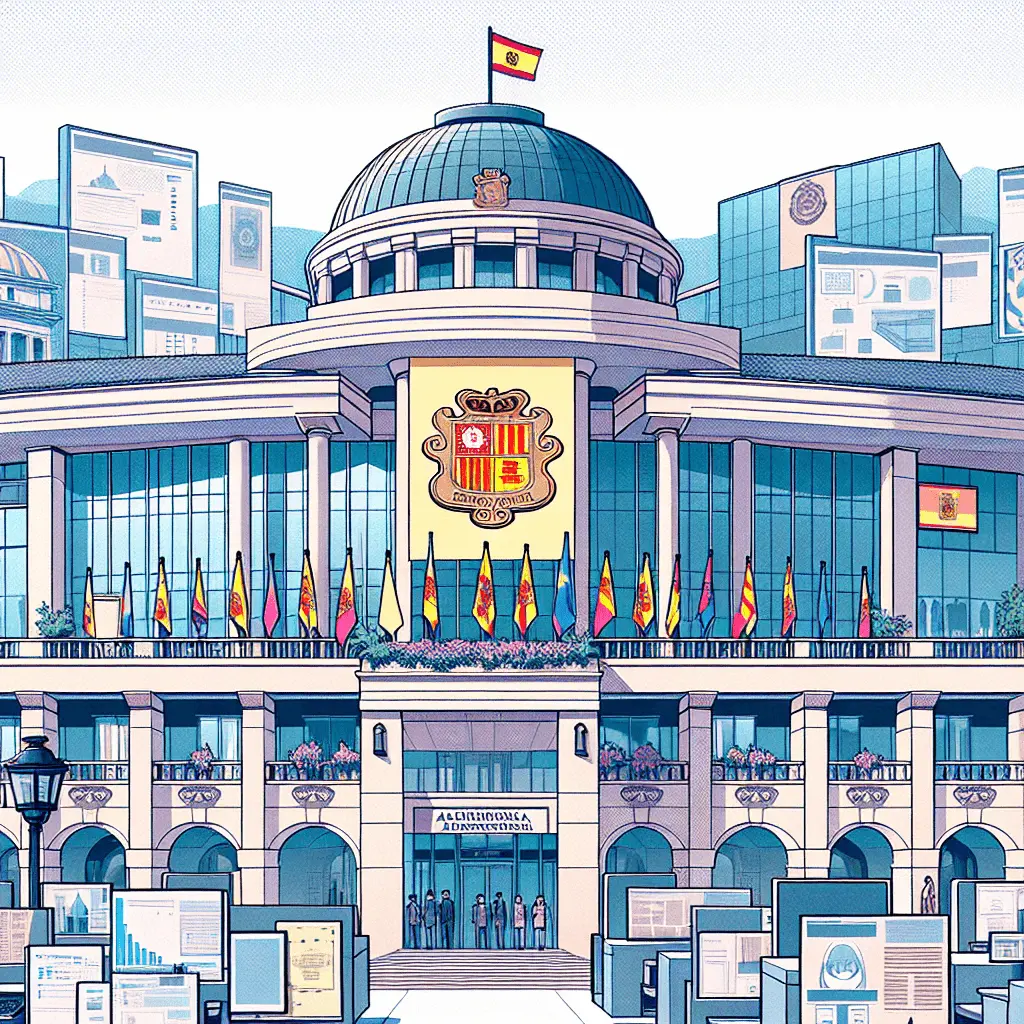Introduction
The Regulation of the Immigration Service in Andorra is a key piece of legislation for those interested in residing or working in this country. Recently updated in 2025, this regulation establishes the foundations for administrative management regarding immigration, defining competencies, requirements, and procedures for applying for and renewing residence and work permits. In this article, we explain in detail how this service operates and what you need to know if you’re planning to relocate your residence to Andorra.
What does the Regulation of the Immigration Service cover?
This regulation primarily aims to regulate the operation of the Immigration Service, the Central Immigration Register, and the documentary requirements for applications related to residence and work in Andorra. Among the aspects it addresses are:
- The composition and competencies of the Immigration Service.
- The management of the Central Immigration Register.
- The requirements for submitting residence and work authorization applications.
- The deadlines for leaving Andorra if necessary.
- The payment regime for related administrative fees.
Operation and competencies of the Immigration Service
The Immigration Service is comprised of personnel from the Police Department and the Immigration Department, both under the coordination of the Minister of Interior. Their responsibilities include providing information to residents and foreign workers, managing immigration quotas, processing applications, overseeing irregular situations, and collaborating with other agencies.
Main functions
- Informing foreigners and employers about their rights and obligations regarding immigration.
- Managing immigration quotas and providing data for their formulation.
- Processing, granting, and renewing immigration permits.
- Maintaining the Central Register and issuing related certificates.
- Monitoring violations and enforcing sanctions related to immigration.
- Collecting processing fees.
Requirements for applying for residence and work authorization
The regulation specifies the documents required for different types of applications. Meeting these requirements is essential to obtain legal residence and the right to work in Andorra.
Basic documentation for initial applications
- Recent criminal background certificates from both the home country and the country of residence.
- Valid passport or identification document in some cases.
- Proof of marital status.
- Proof of accommodation, rental agreement, or property ownership.
- Consent from the property owner if the applicant is not the contract holder.
- Recent photograph, in specific format and with a light background.
- Signed document by the applicant.
Economic and insurance requirements
To demonstrate sufficient financial means, it is required to prove minimum income equivalent to the Andorran minimum wage or provide certification covering educational or healthcare expenses, such as studies or private health center admissions.
Additional documentation depending on the type of permit
Depending on the requested authorization (self-employment, family reunification, studies, training internships, sports training, among others), additional documents must be provided to validate the specific situation of the applicant or their family.
Family reunification and specific conditions
The regulations also meticulously govern the conditions for family reunification, detailing the required documents for reuniting spouses, minor children, and legal guardians within Andorra. It is important for applicants to review these requirements when planning to relocate.
Fees and administrative deadlines
The payment of fees is mandatory for processing permissions. They must be paid when due, and complete documentation and proof of payment must be presented for the application to be valid. An eight-day period is also established for leaving Andorra after notification of an order in this regard.
Integration and knowledge tests
Those obtaining a residence and work permit in Andorra must demonstrate an adequate level of cultural and linguistic integration. The regulation requires holding a B2 or higher level Catalan diploma and passing tests on Andorran history, culture, and society.
Conclusion
The Regulation of the Immigration Service in Andorra is fundamental for understanding how to manage your relocation and residency in the principality. Complying with the established requirements and procedures facilitates legal access to residence and work, and ensures orderly coexistence in accordance with local regulations.
If you are considering moving to Andorra or investing in a local company, it is advisable to seek professional guidance and learn the current legislation in detail. You can find more practical information about residency in Andorra, taxes, or cost of living on our Andorraway website.

